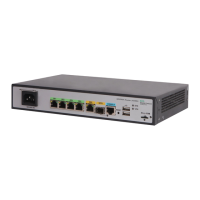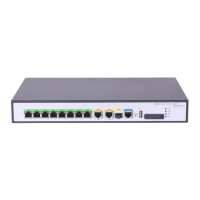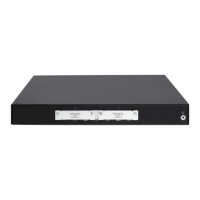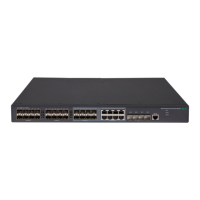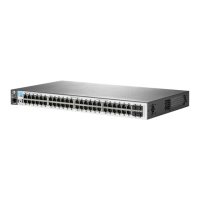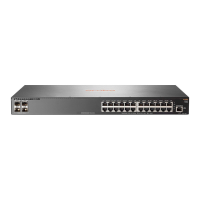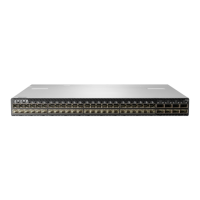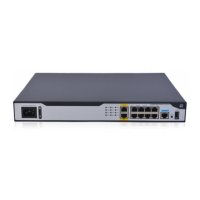290
chassis chassis-number slot slot-number: Specifies a card on an IRF member device. The
chassis-number argument represents the member ID of the IRF member device. The slot-number
argument represents the slot number of the card. If you do not specify a card, the policy applies to all
cards on the specified member device. (Distributed devices in IRF mode.)
Usage guidelines
Use process event monitor policies to monitor process state changes. These changes can result
from manual operations or automatic system operations.
You can configure only one event for a monitor policy. If the monitor policy already contains an event,
the new event replaces the old event.
Examples
# Configure a CLI-defined policy to monitor all instances of the process snmpd for restart events.
<Sysname>system-view
[Sysname] rtm cli-policy test
[Sysname-rtm-test] event process restart name snmpd
event snmp oid
Use event snmp oid to configure an SNMP event for a CLI-defined monitor policy.
Use undo event to delete the event in a CLI-defined monitor policy.
Syntax
event snmp oid oid monitor-obj { get | next } start-op start-op start-val start-val restart-op
restart-op restart-val restart-val [ interval interval ]
undo event
Default
No SNMP event is configured.
Views
CLI-defined policy view
Predefined user roles
network-admin
Parameters
oid oid: Specifies the OID of the monitored MIB variable, a string of 1 to 256 characters.
monitor-obj { get | next }: Specifies the SNMP operation used for sampling variable values. The get
keyword represents the SNMP get operation, and the next keyword represents the SNMP getNext
operation.
start-op start-op: Specifies the operator for comparing the sampled value with the start threshold.
The start threshold is crossed if the comparison result meets the condition. For keywords available
for the start-op argument, see Table 61.
start-val start-val: Specifies the start threshold to be compared with the sampled value. The start-val
argument can be any data type supported by SNMP, including numerals and character strings. The
CLI online help system displays the value range as character strings of 1 to 512 characters. If the
threshold value contains spaces, you must enclose the value in quotation marks (" ").
restart-op op: Specifies the operator for comparing the sampled value with the restart threshold.
The restart threshold is crossed if the comparison result meets the condition. For keywords available
for the start-op argument, see Table 61.
restart-op restart-val: Specifies the restart threshold to be compared with the sampled value. The
restart-val argument can be any data type supported by SNMP, including numerals and character
